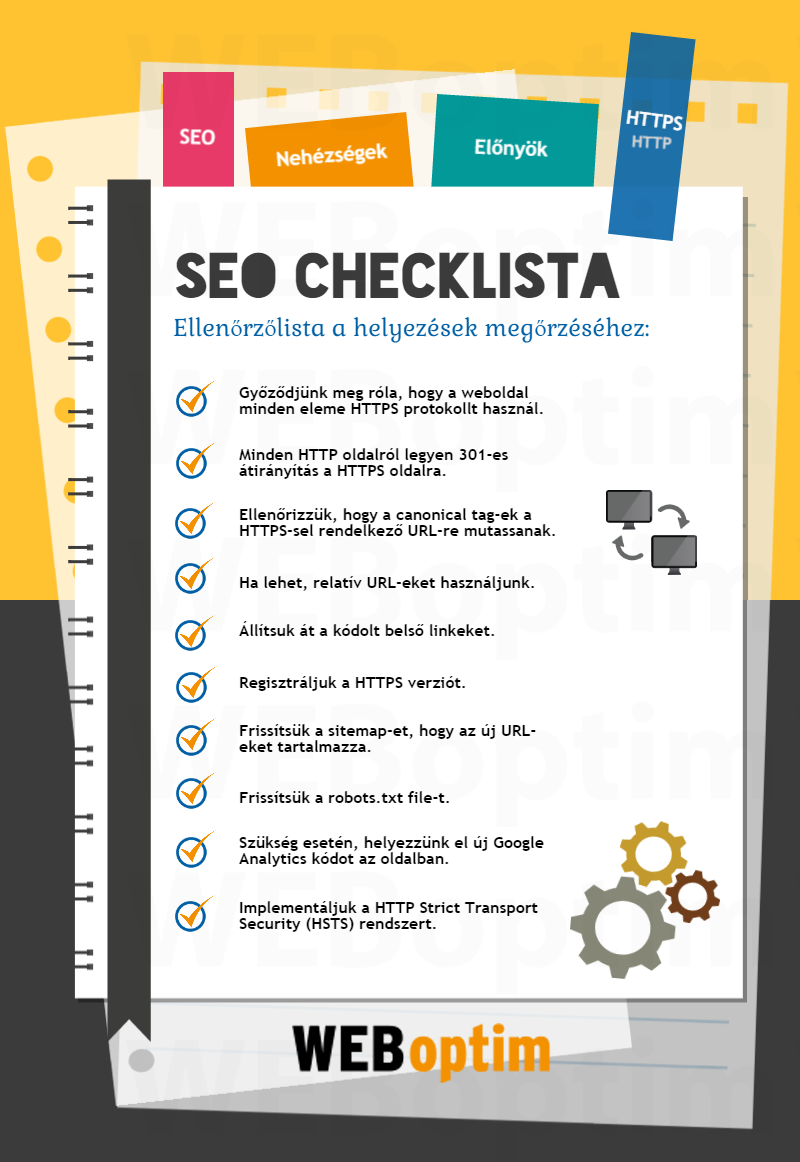HTTPS protocol - SEO tips and tricks | Weboptim
Google's exact ranking criteria are not known, which is why it was a surprise when it announced that the use of HTTPS affects the results of the hit list.
It is expensive, risky and far from simple. But it has the advantage of making data more secure, which can lead to a positive shift in rankings.

The SEO benefits of switching to HTTPS
1. several references
If traffic moves from a secure HTTPS site to a less secure HTTP site, data is lost. In Google Analytics, this will show up as direct traffic, meaning that the system will not know where the traffic actually came from.
The good news is that when traffic passes through the HTTPS site, the information captured by the security system is preserved, making it easier to identify the source site, regardless of which of the two URL schemes it uses. As more sites start using it, it will become more and more important.
2. progress in the ranking
According to Google, HTTPS use can improve rankings.But as the final ranking is based on more than 200 factors, this influence is weak.
So HTTPS is not a magic bullet. It is likely that other changes, such as site speed optimisation, removing duplicate content, or creating quality content, will achieve much greater results.
3. security and privacy
Any content can benefit from HTTPS/SSL encryption. HTTPS prevents unauthorised third party interference, making the website more secure. It encrypts all communications, including URLs, so protection extends to browsing history and credit card numbers.
Although it may only have a small impact on rankings, it may be worth using to increase safety and confidence.
Difficulties in implementing HTTPS
1. errors
The implementation of HTTPS requires many changes, which may miss important details.
- Did we block important URLs in the robots.txt file?
- Showing canonical tag for HTTP URLs?
- Browsers won't throw up a warning window because of the protocol?
So it's risky, but in most cases it's easy to fix.
2. speed
The HTTPS protocol requires extra communication from the servers, so there is a possibility that the website will slow down. As speed is an important ranking factor, it needs special attention. However, if the technology is used correctly, it can speed up a site.
3. costs
Costly, especially for smaller website owners.
4. not all HTTPS compatible
Some web applications do not work well with URLs with HTTPS. At the moment, Google Webmaster Tools does not really support the implementation of HTTPS, and Adwords also limits SSL-compatible ads.
For now. But this is likely to change in the future, as the number of websites using HTTPS continues to grow.
SEO checklist to keep your rankings:

So the web is already moving towards SSL encryption, which is likely to become the default setting for all websites in a few years.
Source: moz.com